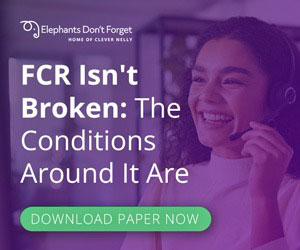Reg Dutton questions if incentives are really the best way to motivate advisors, suggesting some alternative methods in the process.
If you want people to perform better, you reward them, right? Not necessarily.
In the classic “candle test”, a scientist named Sam Glucksberg told participants that he was going to time them on how quickly they could solve a problem.
To the first group he simply said he wanted to establish averages for how long it typically takes someone to solve this sort of problem. To the second group he offered rewards: $5 if they finished in the top 25% of the fastest times and $20 if they finished the fastest of everyone they tested.
How much faster did the incentivised group solve the problem? Answer: It took them, on average, three and a half minutes longer.
How? What? Why?
In case you are thinking this was a one-off, this experiment has been replicated many times by eminent seats of learning such as the London School of Economics and MIT. The results are always the same: incentives designed to sharpen thinking and accelerate creativity achieve exactly the opposite.
The reason for this is that rewards work well for tasks where there is a simple set of rules and a clear outcome, as they narrow our focus and concentrate the mind. But for tasks that require you to think outside of a pre-set framework and find a solution, they simply don’t work.
How Does This Relate to the Work of a Contact Centre Agent?
No matter how many scripts and predetermined answers you use to assist and coach an agent, you can never prepare them for the vagaries of every enquiry.
The very nature of an agent’s job is to interact with customers: listen, sympathise, empathise, pacify, direct, guide, explain. All of these human interactions require out-of-the-box thinking, and it’s a requirement that is increasing by the day.
The rise of automation and the drive to reduce contact centre costs means that the existing model must evolve. Increasingly, the focus will be on how to handle complex and sensitive issues that can make or break a relationship with the brand. It will require agents with far greater capabilities than at present, agents who will need to find answers to problems that don’t have a pre-existing solution. As a result, motivation by reward will become even less effective.
Another factor that is coming into the mix is that the next generation of agents will have a different expectation of their work–life balance. Millennials and Post-Millennials (aka Generation Z) will care more about how their job makes them feel, so financial incentives have even less appeal.
What’s worrying is that most current business operating systems are built entirely around the carrot and stick. That was fine for the 20th-century call centre, but for the 21st century this mechanistic, reward/punishment approach no longer works.
So if the carrot and stick doesn’t work, what does?
Autonomy + Mastery + Purpose = Motivation
The key to more productive, more capable agents lies not in incentives, rewards or workforce optimisation, but in ensuring agents are fully engaged at work.
But in order to increase agent engagement, we need to introduce a new operating system, one that revolves around three elements: Autonomy, Mastery and Purpose.
This ground-breaking model is the brainchild of Dan Pink, one of the world’s leading business thinkers.
- Autonomy: the urge to direct our own lives
- Mastery: the desire to get better and better at something that matters
- Purpose: the yearning to do what we do in the service of something larger than ourselves
It provides the building blocks that lead directly to an increasingly capable, engaged and motivated workforce.
Contact Centre Software That Fits This New Model
EvaluAgent’s Multi-Channel Quality Monitoring Platform fits in with this approach and has a track record of being used successfully to motivate agents.

Reg Dutton
When Atos trialled this solution, its impact was immediate. In just the first three months after implementation Atos saw a reduction in AHT, a consistent improvement in agent performance and a sharp uplift in overall customer satisfaction.
It also raises the question of whether it’s time to put aside the outdated notion of ‘carrot and stick’ and introduce a motivational tool worthy of the 21st century.
Author: Robyn Coppell
Published On: 12th Mar 2018 - Last modified: 20th Mar 2018
Read more about - Archived Content, EvaluAgent







